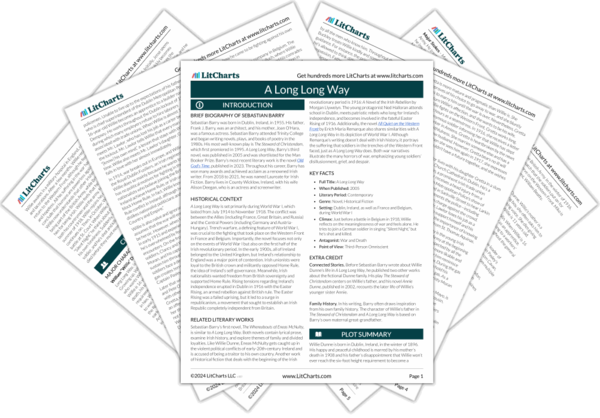LitCharts assigns a color and icon to each theme in A Long Long Way, which you can use to track the themes throughout the work.
Youth, Naivety, and Growing Up
Family, Camaraderie, and Love
Political Conflict and Divided Loyalties
Resilience and Shared Humanity
